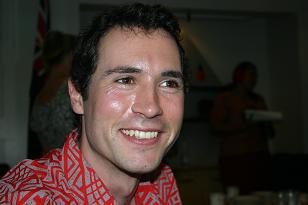Content for Radio Journalists Training
By Jake Brown
Journalism Lecturer/Trainer
How do I make a dull newspaper article, press release or yesterday news into sharp informative fresh news for radio?
Broadcast radio news is the most important medium of journalism there is. News can be soaked up while driving, cooking and working, with your eyes closed and even while watching TV or reading a book. But, the human ear can only digest and process interesting, sharp and to the point information. This workshop will help you build the skills needed to make your news stand out and stick in peoples heads, be understood, sound fresh and ultimately make you and your radio station sound good.
out and stick in peoples heads, be understood, sound fresh and ultimately make you and your radio station sound good.
This is a 2 hour workshop for professional journalists and members of the public interested in broadcast journalism. It’s aimed at introducing them to Australian and British radio news bulletins standards and enhancing their skills in news writing style, writing broadcast copy and on-air delivery.
The Workshop Program
News Writing Styles
• We Write for the Ear not the Eye
• Rewriting Copy
• Broadcast News is Always in the PRESENT
Writing Broadcast Copy
• The Lead
• Convince Your Listeners the News is Fresh
• Constructing the Rest of the Story
Delivering the News
• Marking Copy to Make you Sound Good
• Making the Audience Want to Listen to You
• Pronunciation Tricks
Journalism Lecturer/Trainer
How do I make a dull newspaper article, press release or yesterday news into sharp informative fresh news for radio?
Broadcast radio news is the most important medium of journalism there is. News can be soaked up while driving, cooking and working, with your eyes closed and even while watching TV or reading a book. But, the human ear can only digest and process interesting, sharp and to the point information. This workshop will help you build the skills needed to make your news stand
 out and stick in peoples heads, be understood, sound fresh and ultimately make you and your radio station sound good.
out and stick in peoples heads, be understood, sound fresh and ultimately make you and your radio station sound good.This is a 2 hour workshop for professional journalists and members of the public interested in broadcast journalism. It’s aimed at introducing them to Australian and British radio news bulletins standards and enhancing their skills in news writing style, writing broadcast copy and on-air delivery.
The Workshop Program
News Writing Styles
• We Write for the Ear not the Eye
• Rewriting Copy
• Broadcast News is Always in the PRESENT
Writing Broadcast Copy
• The Lead
• Convince Your Listeners the News is Fresh
• Constructing the Rest of the Story
Delivering the News
• Marking Copy to Make you Sound Good
• Making the Audience Want to Listen to You
• Pronunciation Tricks

